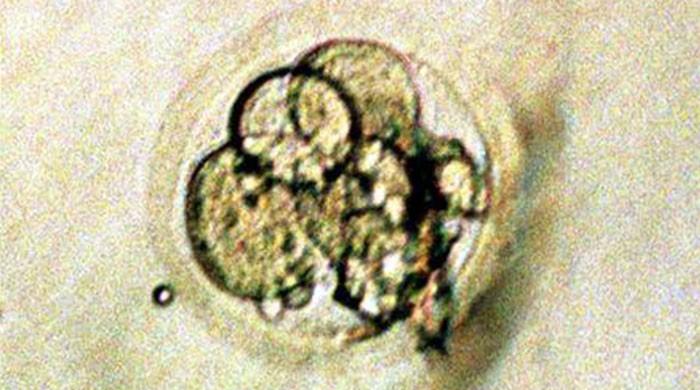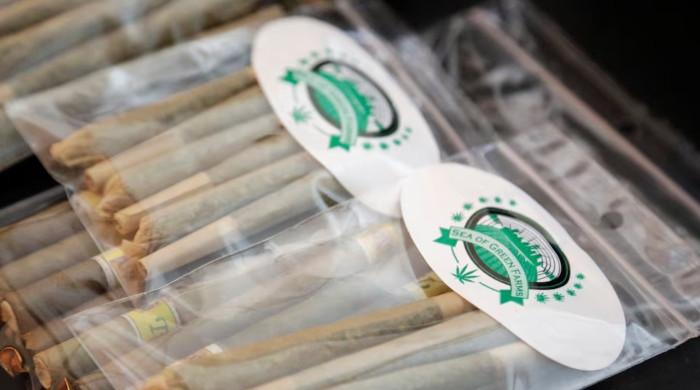Scientific community debates research on 28-day embryos
The 14-day rule was first suggested in the UK in 1984 by the Warnock Report and was then enacted in the UK's Human Fertilisation and Embryology Act 1990
December 05, 2016

Some of the world’s leading scientists will gather at University College London to discuss a highly controversial yet simple notion which is to scrap the 14-day limit on embryo research, the guardian reported on Sunday.
The 14-day rule was first suggested in the UK in 1984 by the Warnock Report and was then enacted in the UK's Human Fertilisation and Embryology Act 1990.
This limit was chosen for a number of reasons including that 14 days is about the stage at which three primitive embryonic layers are formed in the embryo, each one having its own distinct function. It is also believed to be the point at which an embryo can no longer split to form identical twins.
According to Dr Calum MacKellar, Director of research, Scottish Council on Human Bioethics, “With the passing of the years, however, this concept of a special moral status of the early embryo has all but been abandoned. Indeed, without any clear definition, the concept was unintelligible, meaningless and bound to be discarded.”
But the idea of scrapping a key tenet of Britain’s fertilisation laws dismays many. Among them is Mary Warnock, the eminent British philosopher whose committee first proposed the 14-day limit, a rule that has since been adopted in countries around the world as the ideal upper age for conducting research on embryos in the laboratory. Warnock warns that opponents of embryo research will seize on attempts to extend the limit as an opportunity to place the whole practice in jeopardy. “I suggest that researchers should now take more time to fully utilise the extra days right up to the 14-day limit before arguing for the legal limit to be extended,” she told the Observer last week.
The call to extend the rule will reignite the bitter debate that has surrounded the use of human embryos – created through in vitro fertilisation (IVF) – and will again bring religious figures, scientists, ethicists and politicians into conflict. Some warn that failure to extend the 14-day rule will block new medical treatments from being developed, while others say that any attempt to extend the limit could cause a backlash that could see all embryo research being blocked in the UK – arguments that will dominate the Progress Educational Trust meeting on embryo research that will be held in London on Wednesday.
Embryo research was propelled on to newspaper front pages in 1978 by the birth of Louise Brown, the world’s first IVF baby. Many worried about how the technique might be used. “It was said that mad scientists would set up their laboratories, create embryos using IVF and keep them going for their experiments and not destroy them until they were great big, curled-up foetuses in test tubes,” Warnock recalls. “Researchers might even allow these embryos to develop in the laboratory until they became babies.”









